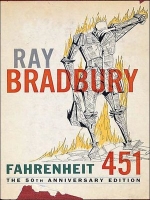This review will most likely contain spoilers for any previous books in the series, read at your own risk.
Humanity starts out with a very brief, and rather insufficient, summary of the events of the series. Derec, Ariel, Mandelbrot, Wolruf, Dr. Avery, and the three learning robots are on their way back to the original robot city. They are in for a big surprise when they enter orbit. As with previous books in this series we get to see a good portion of action, as well as discussion about what is meant to be human.
We do get to see how the whole series is tied together. For my taste, it seems that everything fits together a bit too nicely. Also, I was expecting a bit more closure toward the end. I was left with the feeling that yet another series or at least novel should fill in the gap between this series and the Tiedemann Trilogy (Mirage, Chimera, Aurora) which involves both Derec and Ariel. I’ll discuss this in more detail in my general Robots and Aliens review which will follow as I can’t do this without major spoilers for this last novel.



